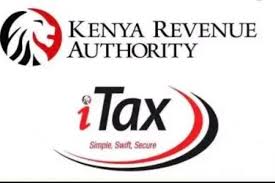
In a landmark ruling that may redefine tax enforcement, Kenya’s Tax Appeals Tribunal has empowered the Kenya Revenue Authority (KRA) to categorize all bank deposits as taxable income if the taxpayer fails to provide sufficient evidence to prove otherwise.
Court Gives KRA Broad Discretion Amid Documentation Gaps
In a decision published today, the Tribunal confirmed that the bank deposit analysis method—wherein KRA treats unexplained account credits as income—is a legitimate tool permitted under the Tax Procedures Act. Under this ruling, failure by taxpayers to justify the nature of deposits may result in those funds being taxed as income.
This judgement essentially places the onus on taxpayers to substantiate that deposits are legitimate sources—such as loan disbursements, client funds, or gifts—rather than taxable earnings. Without such substantiation, KRA has the discretion to assess all deposits as income.
Precedents Validate Bank Deposit Analysis
This Tribunal decision aligns with prior case-law affirming that bank deposit analysis remains an accepted and sensible methodology for income assessment. Courts have long recognized that when taxpayers cannot substantiate deposits with supporting documentation, KRA is legally entitled to treat them as taxable income.
Furthermore, in Highrise Commodities Limited, the Tribunal emphasized that this power arises under Sections 24(2), 59(1), and related provisions of the Tax Procedures Act, enabling KRA to act on available information when taxpayers default on compliance.
Implications for Taxpayers: Urgent Call for Documentation
This ruling is a wake-up call to individuals and businesses: maintain meticulous records. Whether it’s tracking funds meant for clients, detailing loan agreements, or distinguishing personal gifts from business revenues—failure to document deposits may trigger automatic taxation.
Kenya Revenue Authority now operates with full legal justification to include unexplained bank activity in taxable income tallies.







